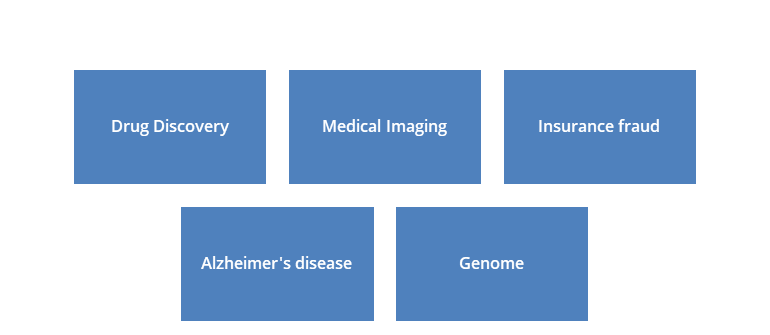Top 5 Applications of Deep Learning in Healthcare
Top 5 Applications of Deep Learning in Healthcare

Deep learning in healthcare can uncover the hidden opportunities and patterns in clinical data, helping doctors to treat their patients more efficiently.
Artificial Intelligence, machine learning and deep learning have gained a lot of attention for quite some time now. These technologies are revolutionizing various industries such as retail, finance, travel, manufacturing, healthcare, and so on. Healthcare is an important industry that implements these technologies. As health is a priority, medical experts are continually trying to find ways to implement new technologies and provide impactful results. Deep learning in healthcare offers pathbreaking applications. Deep learning gathers a massive volume of data, including patients’ records, medical reports, and insurance records, and applies its neural networks to provide the best outcomes.

Benefits of Deep Learning
In simple words, deep learning is a type of machine learning. It solves problems that were unsolvable. Deep learning uses the neural networks to increase the computational work and provides accurate results. Some of the incredible applications of deep learning are NLP, speech recognition, face recognition. For instance, when you upload a picture with your friend on Facebook, Facebook automatically tags your friend and suggests you his name. Facebook uses deep learning techniques to recognize a face. Deep learning techniques understand human spoken languages and convert them into text. In the future, deep learning, in collaboration with IoT, might see tons of groundbreaking innovations.
Deep Learning in Healthcare
Deep learning is assisting medical professionals and researchers to discover the hidden opportunities in data and to serve the healthcare industry better. Deep learning in healthcare provides doctors the analysis of any disease accurately and helps them treat them better, thus resulting in better medical decisions.
1. Drug discovery
Deep learning in healthcare helps in the discovery of medicines and their development. The technology analyzes the patient's medical history and provides the best treatment for them. Moreover, this technology is gaining insights from patient symptoms and tests.
2. Medical imaging
Medical imaging techniques such as MRI scans, CT scans, ECG, are used to diagnose dreadful diseases such as heart disease, cancer, brain tumor. Hence, deep learning helps doctors to analyze the disease better and provide patients with the best treatment.
3. Insurance fraud
Deep learning is used to analyze the medical insurance fraud claims. With predictive analytics, it can predict fraud claims that are likely to happen in the future. Moreover, deep learning helps insurance industry to send out discounts and offers to their target patients.
4. Alzheimer's disease
Alzheimer is one of the significant challenges that the medical industry faces. Deep learning techniques are used to detect the Alzheimer disease at an early stage.
5. Genome
Deep learning technique is used to understand a genome and help patients get an idea about diseases that might affect them. Deep learning has a promising future in genomics, and also the insurance industry. Entilic says that they use deep learning techniques to help doctors make faster and more accurate decisions. Cellscope uses deep learning techniques to help parents monitor the health of their children through a smart device in real time, thus minimizing frequent visits to the doctor. The evolution of deep learning in healthcare provides doctors and patients astonishing applications, enhancing their medical treatment experience.
Naveen Joshi
Tech Expert
Naveen is the Founder and CEO of Allerin, a software solutions provider that delivers innovative and agile solutions that enable to automate, inspire and impress. He is a seasoned professional with more than 20 years of experience, with extensive experience in customizing open source products for cost optimizations of large scale IT deployment. He is currently working on Internet of Things solutions with Big Data Analytics. Naveen completed his programming qualifications in various Indian institutes.
Trending
1 How a Feedback and Bug-tracking Tool Can Streamline Your Processes
Daniel Hall2 Exploring the Versatility of LEXAN™ Film in Industries
Daniel Hall3 AI-Powered Cyber Threats Set to Surge in 2025, Google Cloud Warns
Fabrice Beaux4 How to Search Instagram by Phone Number Without an Account
Daniel Hall5 The Rise of Visual Search: Why It's More Important Nowadays
Daniel Hall

